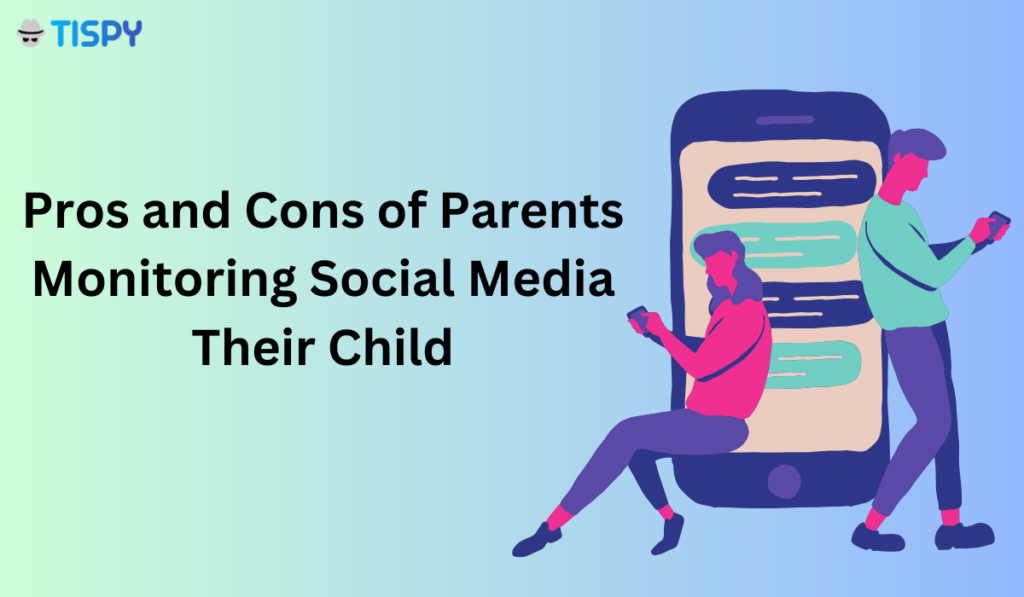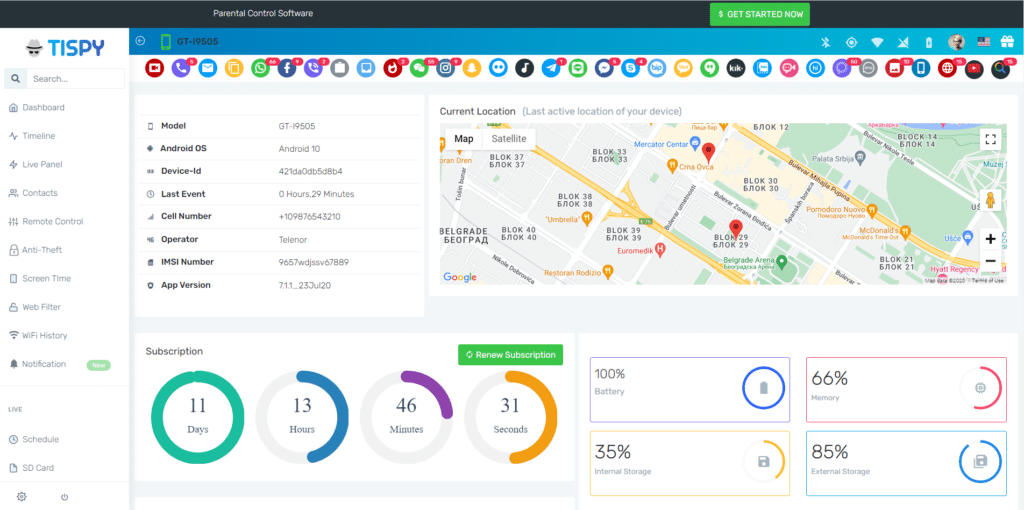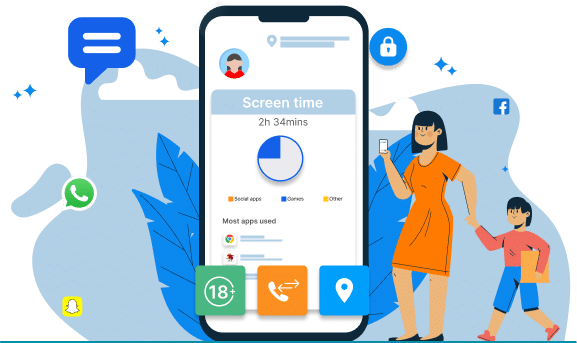
Introduction
Social media has fundamentally transformed the ways in which we connect, share, and learn particularly for children. Various platforms like TikTok, Instagram, and Snapchat allow them to express their individuality and stay in touch with peers, but this also introduces considerable risks. Issues such as cyberbullying, inappropriate content, online predators, and the pressure to fit in can make the digital landscape a tricky place for young users.
But why should parents monitor social media? The answer is to protect children from social media risks. However, monitoring creates issues of privacy and trust that may strain relationships, leaving parents uncertain about how much involvement is good.
Below are the pros and cons of parents monitoring their child’s social media and guidance on navigating digital parenting, ensuring kids’ online safety without crossing boundaries.
Key Takeaways
- Tools like TiSPY provide a safe and ethical way to monitor children’s social media activities.
- Transparent monitoring shows kids that parents are involved out of care, not control.
- Using monitoring tools responsibly helps parents guide their children without overstepping boundaries.
- Encouraging kids to share their online experiences fosters better understanding and stronger bonds.
Pros of Monitoring Social Media
Safety and Protection
Monitoring tools are beneficial for protecting kids from dangers like cyberbullying, harassment, or inappropriate content they shouldn’t be exposed to. By staying aware, parents can catch potential problems early and step in to address them.
Mental Health Awareness
Monitoring can help parents spot warning signs of issues like stress or anxiety caused by social media. Recognizing these early gives parents the chance to step in and offer support when it’s needed most.
Guiding Digital Responsibility
With monitoring tools, parents can guide kids in using social media responsibly, including understanding privacy settings, avoiding oversharing, and recognizing harmful content.

Setting Boundaries
Establishing rules for social media use ensures that children understand limitations, such as screen time and appropriate content, fostering healthy habits.
Building Trust and Open Communication
When done transparently, monitoring can lead to honest discussions about online safety, helping parents and children build mutual trust.
Preventing Dangerous Situations
Monitoring tools can alert parents to step in before risky interactions, such as grooming attempts or conversations with strangers, get out of hand. By catching these dangers early, parents can protect their kids.
Cons of Parents Monitoring Social Media
Trust and Privacy Issues
Keeping an eye on kids’ social media can always make them feel like their parents don’t trust them, which might push them to keep things hidden. They will feel like their privacy is always being invaded, which can create distance between kids and their parents. It can also be harder for kids to open up and have honest conversations.
Impact on Parent-Child Relationship
Constantly monitoring children’s social media makes them feel like they’re under constant surveillance. Kids feel that relationships are more about control than care, which could push kids away, making them less likely to talk to their parents about important things or share their feelings.
A Feeling of Restriction in Freedom
When kids feel like their parents are always watching their online activity, they might see it as a limit on their independence. This sense of restriction can make them hesitant to share their true thoughts or experiences.
Misunderstanding
Parents might misinterpret social media posts or interactions. These misunderstandings can lead to unnecessary conflict and also create a barrier to communicating openly and honestly for both parents and children.
What’s the Best Way to Monitor Children’s Social Media?
Finding a balance between remaining informed and respecting your child’s privacy while monitoring their social media is essential. Instead of sneaking around, have open conversations about online safety and discuss why monitoring is significant. This approach builds trust and lets kids understand you are looking out for them.

A tool like TiSPY can facilitate this process. The TiSPY app lets you track your child’s real-time social media activity, messages, and screen time. TiSPY is designed to provide parents with peace of mind without being overly invasive. With features such as content filtering and alerts for suspicious activity, it aids you in staying on top of potential risks, allowing your child to explore the digital realm safely.
Conclusion
Monitoring your child’s social media platforms is a tricky balancing act. While monitoring helps protect them from issues such as cyberbullying, harmful content, and risky interactions, if not done thoughtfully, it can lead to feelings of distrust or a lack of respect for their privacy. Finding the right approach is, therefore, crucial to ensuring their safety.
The essential element here is honest and open communication; finding the right balance between safety and independence is crucial. Tools like TiSPY can facilitate this process, allowing you to oversee their online activity responsibly without being excessively involved. By encouraging your child to cultivate positive online habits and remaining supportive, you can ensure their safety while fostering a strong, trusting relationship.




